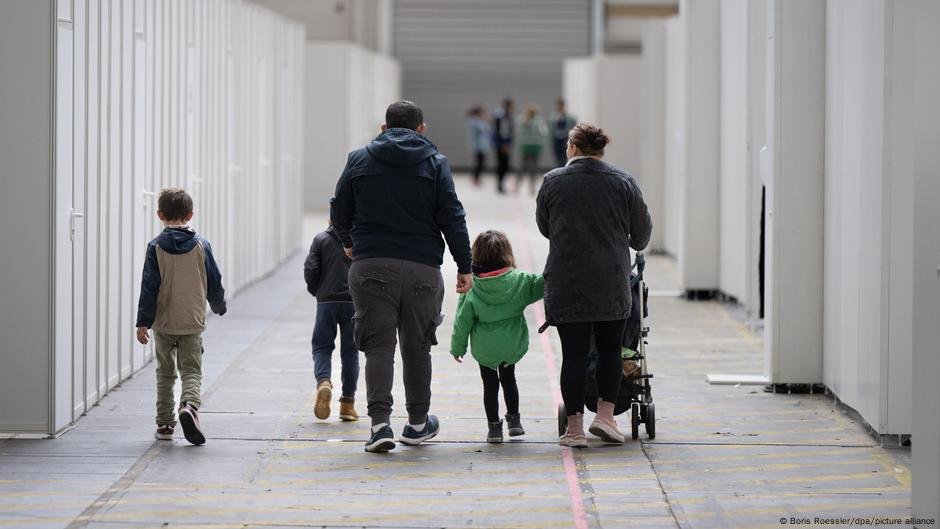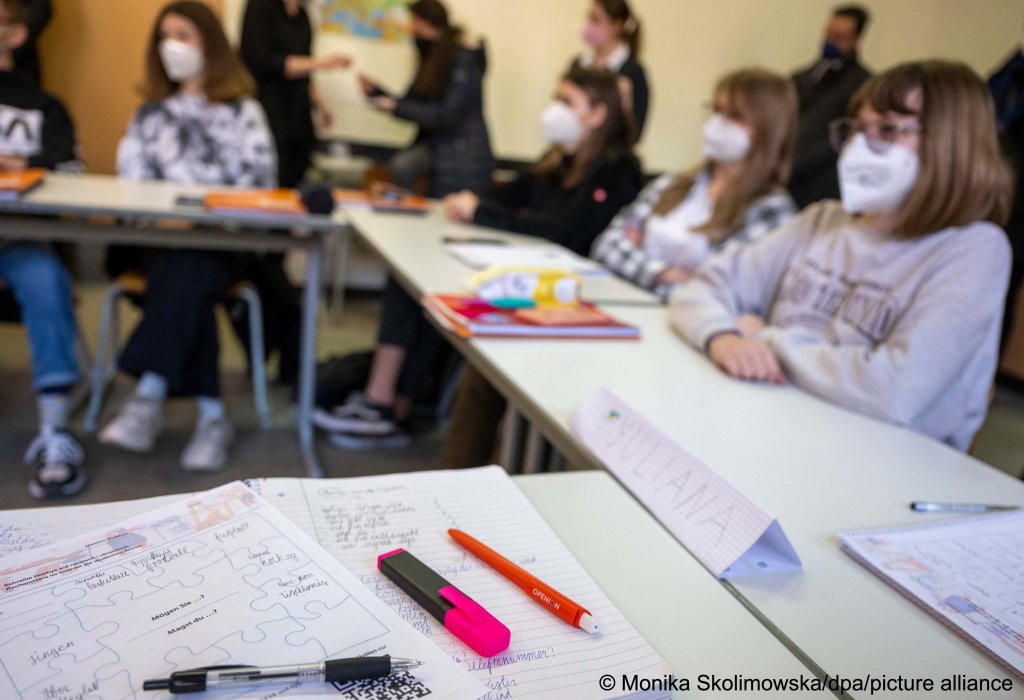Following massive criticism and the clamor for deportation bans in schools, the local district has announced an investigation into the incident.
The attempt by police to carry out the deportation of a 10-year old Syrian refugee during her physical education class in Naumburg, eastern Germany, has sparked outrage.
On May 12, the student was reportedly removed from her school building by the teaching staff in the presence of authorities and other students. Her two brothers, aged 12 and 14, were also taken from their schools as part of carrying out the deportation. The family of seven—the parents and children—were then driven to the airport. However, the pilot refused to transport the family, citing the family's resistance. The family is now reportedly in hiding.
The girl’s family had reportedly fled Syria and lived in Bulgaria for two years before entering Germany. The girl’s family was set to be deported to Bulgaria after the Halle Administrative Court rejected an urgent application for annulment as unfounded.
The regional refugee council and politicians from the Green and Left Party slammed the incident.
“In any case, there must be no deportations from schools, nor from other shelters, because this has serious consequences for the girl affected,” Stefanie Mürbe from the Refugee Council of Saxony-Anhalt told regional public broadcaster MDR.
'Not unlawful'
Local officials rejected the criticism, insisting that considerable thought was given to carrying out the deportation in a proportionate manner.
Götz Ulrich, district administrator of the Burgenland district and from the conservative CDU party, defended the decision, claiming that the family had tried to evade deportation and that the fundamental decision to remove the children from school and not deport them separately from their families was the right one. The authorities had reportedly offered the Naumburg family a voluntary departure with financial support.
"Schools are not a lawless area. Picking up students from schools for the purpose of deportation is not unlawful if it is chosen as an unavoidable means," said Ulrich, speaking to MDR.
Ulrich further stated that it does not violate human dignity for students or teachers to observe the pick-up of students for the purpose of deportation.
Following massive criticism and the clamor for deportation bans in schools, German daily Die Welt reported that the local Burgenland district had announced an investigation into the situation.
MDR reported that in 2024, 654 deportations were carried out in Saxony-Anhalt, 22 percent more than in the previous year. There were 600 voluntary returnees in 2024, an increase of 27 percent.
Syrians in Germany
When the Syrian civil war broke out in 2011, millions of Syrians fled the country. Most sought refuge in neighboring countries such as Turkey, Lebanon, Jordan, Iraq, and Egypt, but some also tried to rebuild their lives in Europe, particularly in Germany. Roughly one million Syrians are living in Germany, making them one of the largest groups of migrants in the country.
Government data showed that last year, Syria was once again the most common country of origin for those seeking asylum in Germany. Almost 75,000 asylum applications were submitted by Syrians by November, followed by 34,300 from Afghanistan and around 29,600 from Turkey.

However, one day after the fall of the Assad regime in Syria last December, the Federal Office for Migration and Refugees (BAMF) issued an immediate freeze on asylum applications from Syrian citizens. An estimated 47,270 pending asylum applications from Syrians, including around 46,000 preliminary applications, were affected.
Syrians in Germany tend to be younger than the general population: on average, they are around 25 years old. Around 37 percent are minors.
Read AlsoSyrians in Germany: What are their plans for the future?
Schools as stabilizing zones
While there is currently no EU-wide policy that designates schools as points of sanctuary and protects schools from being used as points of deportation, access to education and the obligation to attend school apply to all children in Germany, regardless of their immigration status. Additionally, the right to inclusive schooling is enshrined in the United Nations Convention on the Rights of Persons with Disabilities.
Several studies document the difficulty of refugee children and adolescents integrating into the German education system.
According to a 2022 study published in the Science Direct journal for medical and scientific research, refugee adolescents have an increased risk of experiencing mental health difficulties compared to their peers. Barriers such as language fluency, legal issues, and insufficient mental health services that are tailored to their needs heighten the risk.

In this context, schools and the social activities they provide are crucial in serving as stabilizers and support systems for adolescent refugees. However, findings of the study indicate that the existing German school system, with its “structural gaps is rooted in historical segregation and discrimination, lacks the resources to properly address the needs of students with a refugee background."
A longitudinal study by the Leibniz Institute for Educational Trajectories and funded by the German Federal Ministry of Education and Research (BMBF) followed the experiences of more than 4,800 children and young people with a refugee background. The research looked into the participants’s school attendance before, during, and after their flight. Findings indicate that, on average, schooling was interrupted for more than a year for many participants.
